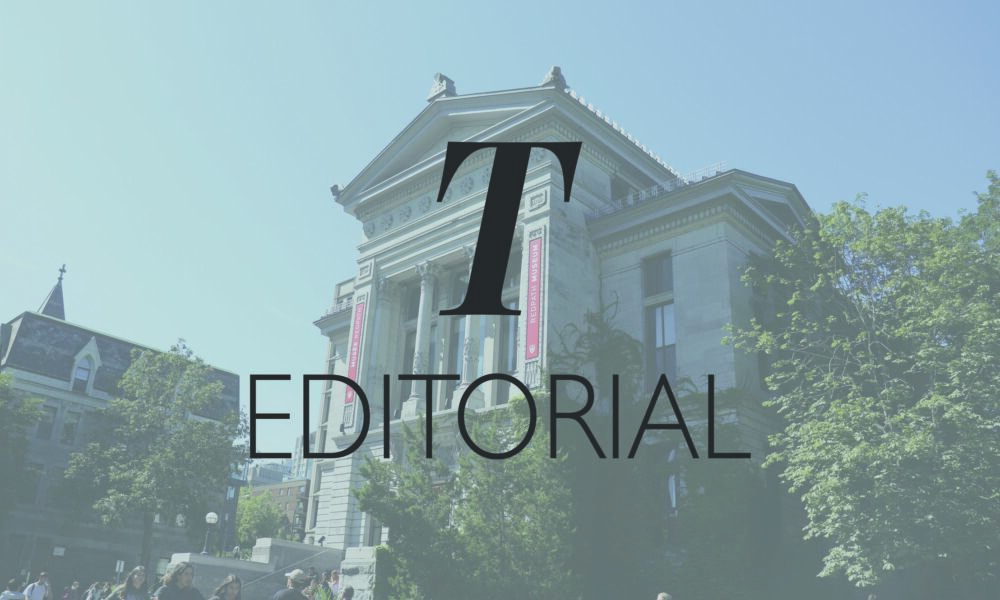Just two months ago, McGill students raised their voices against the Centre for Human Rights and Legal Pluralism hosting a transphobic talk by Robert Wintemute, whose work at the LGB Alliance denies the fundamental rights of trans people under the guise of protection for cisgender gay, lesbian, and bisexual people. The Quebec government has decided to follow McGill’s lead in letting down trans people and economically supporting the erasure of the community. Quebec’s Ministry of Labour, Social Solidarity and the Family confirmed the province’s funding of Pour les Droits des Femmes du Québec (PDF Québec)—a trans-exclusionary so-called feminist organization.
It is in Quebec’s best interest to immediately stop supporting PDF Québec. As the organization uses its social media platforms to publicly target and misgender trans activists such as Fae Johnston, their actions discredit the province as a body legislating in good faith.
Despite the province’s claims that they do not support the entirety of PDF Québec’s views, financial support amounting to $143,000 for the 2022-2023 fiscal year makes the statement that, in fact, they do. Among the province’s several competent and inclusive feminist organizations, Quebec chose the only one in support of Bill 21––which prevents civil servants from wearing religious symbols—that also excludes trans people from its bigoted platform.
In 2015, PDF Québec presented a brief to the federal government asking that only trans people who had medically transitioned could change their official gender identification on government IDs. Two years later, in 2017, it campaigned to modify Bill C-16—which aims to protect gender-diverse people from discrimination—to exclude some trans people, arguing that offering them protection would impede on women’s rights. Quebec’s support of the organization has been ongoing since 2019, with $120,000 to $140,000 of tax-payer dollars going to PDF Québec every year. In the context of increasing hate crimes against 2SLGBTQIA+ people across Canada, Quebec is not protecting its own residents. Instead, the government has explicitly endangered the trans community by not providing them a safe and welcome space to exist, while funding an organization that stands in opposition to their very identity.
Quebec’s support for PDF directly challenges the idea of Canadian exceptionalism, which elevates Canada as a uniquely socially just country in the international order. But Quebec’s political decisions prove that the country is—step by step—following the repressive path of our neighbour south of the border. American lawmakers are passing transphobic bills at an exponential rate, like bans on gender-affirming care or restrictions on name changes. As they become normalized, these laws provide legitimacy for Canadian provinces to implement their own anti-trans agenda. Rather than offer meaningful solutions to the strained health-care system for trans people in Quebec, the province adds to its deadly inaccessibility. By funding a group that only recognizes trans people who have medically transitioned, Quebec ignores the medical discrimination faced by the trans community and propagates biological essentialism. For Indigenous communities under the imposition of settler colonial constructions of gender, the money the province funnels to PDF Québec would be better spent decolonizing Quebec health care.
Quebec must collaborate with and listen to young trans activists like Celeste Trianon, who runs a legal aid clinic helping trans women in Montreal and is a direct target of PDF Québec’s vitriol. Futures for trans people flourishing in the province must recognize the role played by trans women of colour in the history of the North American queer rights movement. Marsha P. Johnson, Sylvia Rivera, and Miss Major Griffin-Gracy led the 1969 Stonewall Riots and played a key role in the emancipation of gay people in the United States and across the world. The ‘T’ carried the ‘LGB’, and excluding trans people, especially of colour, from today’s feminist movements would be a grave denial of history.
The outcry against Quebec’s trans-exclusionary funding must be infinitely louder. The Montreal student community already rebelled once against McGill’s transphobic talks, and must keep denouncing the powerful institutions that impede upon trans people’s basic rights—human rights. Let’s not forget the individual power that each one of us holds in reaching out to their National Assembly representatives, for a single voice speaking out can go a long way in the collective fight for justice.








